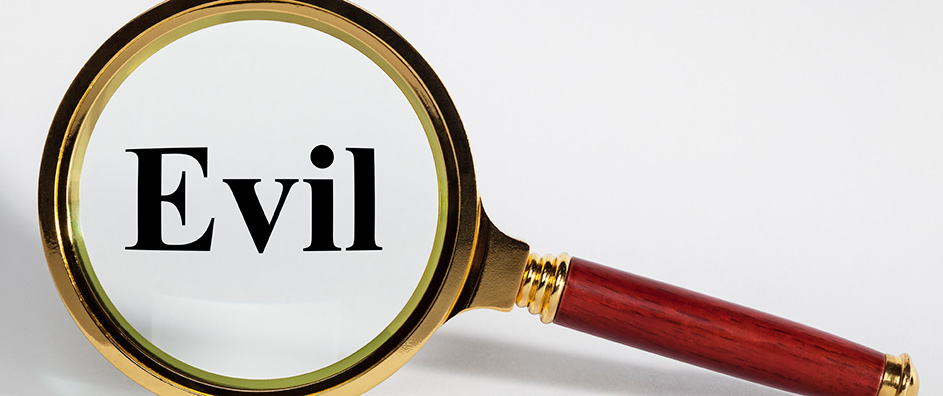The discourse regarding the existence of evil has pervaded philosophical, theological, and moral inquiries throughout humanity’s history. The Bahá’í teachings present a profound examination of this paradox, offering a perspective that navigates the intricate interplay between existence and non-existence of evil. This exploration unfolds not only through theoretical realms but also through practical implications for individual and collective spirituality.
At its core, the Bahá’í approach posits that evil does not possess an independent existence. Rather, it is the absence or negation of goodness—akin to darkness, which merely symbolizes the absence of light. This metaphor of light and darkness serves as a pivotal framework in Bahá’í thought. Light signifies the divine attributes, encompassing love, justice, and virtue, while darkness represents ignorance, hatred, and immorality.
The understanding of evil within the Bahá’í doctrine identifies it as a comparative aspect of human perception. As humanity experiences the world through multifaceted lenses, the dichotomy between good and evil emerges. This framework mirrors the philosophical concept of dualism, yet transcends it by asserting the oneness of humanity and the intertwining of both good and evil in the tapestry of existence.
The essence of evil, therefore, is intrinsically linked to human free will. The ability to choose is a fundamental aspect of the human experience. In this light, individuals are presented with the choice between good and evil—a decision that hinges upon their understanding of divine guidance. Bahá’í teachings emphasize the importance of education and moral development as antidotes to ignorance, which is the root cause of evil. This reveals that the path to overcoming evil is illuminated through enlightenment and knowledge, allowing individuals to recognize and cultivate virtuous attributes.
Moreover, the Bahá’í viewpoint accentuates the role of community in resolving the paradox of evil. It posits that in the realms of collective existence, the manifestation of evil can be understood through social and institutional frameworks rather than individual failings. This notion suggests that social injustices, oppression, and discord arise predominantly from systemic issues rather than inherent moral failings of individuals. Community-oriented solutions, thus, become instrumental in addressing and alleviating the manifestations of evil within society. By fostering unity, promoting justice, and engaging in collaborative efforts, communities can reflect the divine attributes that negate the darkness of evil.
Another captivating aspect of the Bahá’í interpretation is its teleological implications. From the Bahá’í perspective, the existence of evil serves a purpose within the grand narrative of human evolution. The struggles and tribulations that individuals face become means through which spiritual growth and deeper understanding are cultivated. Evil serves as a catalyst, prompting individuals to transcend their limitations, cultivate resilience, and ultimately draw closer to the divine. This perspective repositions evil—not as an obstacle— but as a necessary facet of human development, enriching the soul’s journey toward perfection.
In addressing the existential question of why a benevolent God permits evil, Bahá’í teachings suggest that divine wisdom operates beyond human understanding. The complexity of the universe and the intricate laws governing it reflect a profound plan, one that may encompass perpetual cycles of creation, destruction, and renewal. Therefore, the apparent existence of evil may be a component of a more extensive divine scheme, integrating the transient experiences of individuals into the eternal reality of existence.
It is also worthwhile to discuss the role of divine justice in the Bahá’í faith. Justice serves as a counterbalance to the prevalence of evil through divine accountability. The teachings advocate for an ethical framework that transcends mere legalistic adherence, encouraging individuals to embody qualities that reflect love, compassion, and fairness. The whims of vengeance or arbitrary judgment are rejected in favor of a holistic understanding of justice, which aligns with the divine attributes of mercy and forgiveness.
Furthermore, the concept of evil in the Bahá’í faith is intricately linked to the idea of spiritual and moral decay, which can be perceived as a deviation from the fundamental principles that uphold society and promote personal virtue. By fostering an environment that nurtures spiritual wisdom and promotes ethical behavior, individuals can mitigate not just personal failings but collective challenges as well. The Bahá’í principle of consultation encourages open dialogue, allowing communities to reflect on moral questions with clarity and depth.
The Bahá’í teachings on evil ultimately converge on the notion that the eradication of evil requires a holistic and comprehensive approach. It calls for an awakening of conscience both individually and collectively, inspiring humanity to embrace its inherent potential for goodness. As individuals grapple with the complexities of life and the dualities of existence, the Bahá’í perspective offers a compass, allowing one to navigate through the challenges while emphasizing the preeminence of unity, love, and justice.
In summary, the Bahá’í conception of evil and its paradoxical existence underscores a profound understanding of the human condition. It encourages a deeper exploration of personal responsibility, the interplay of good and evil, and the necessity of education and community in overcoming darkness. By cultivating virtues and aligning oneself with divine attributes, individuals can transcend the limitations of their circumstance and contribute to the collective upliftment of humanity, ultimately realizing a world where the metaphorical light of divine goodness prevails over the shadows of existence.
